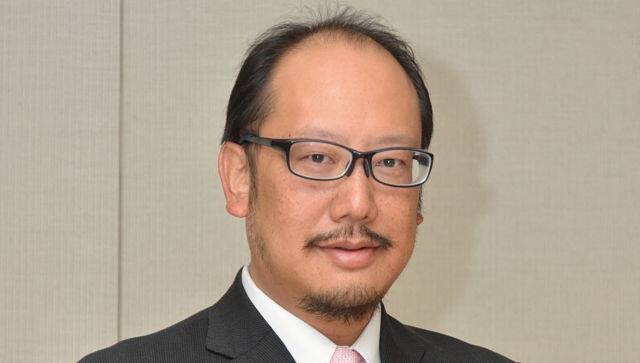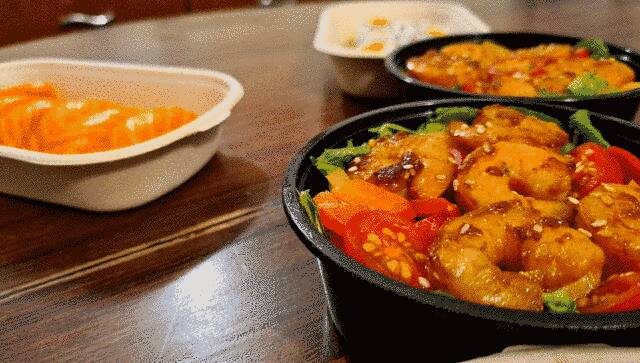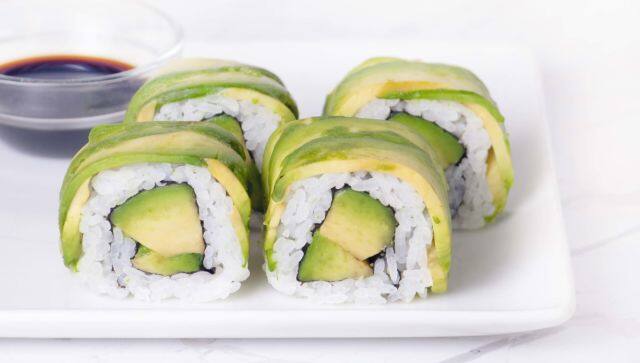“When I was young, we were only able to have sushi around three times a year — and that would be on special occasions. It was very expensive, you see,” reminisces entrepreneur, sushi curator and wearer of a number of other hats, ‘Harry’ Hakuei Kosato, adding, “This was something that we looked forward to, whether it was my graduation or a birthday party. I still remember those days, back when I was eight or nine years old. We’d even dress up to go out and eat sushi.” “In Japanese culture, sushi represents happiness.” This year, Harry completed 13 years in India and his chain of Japanese food delivery and takeaway outlets, Sushi and More (that has six outlets in Mumbai, Delhi and Gurugram), completed nine. “The aim of ‘Sushi and More’ has always been to bring joy, just as the way sushi did for me, growing up,” says Harry, opening up on his idea of ‘sushi diplomacy’. “The democratisation — increased accessibility, availability and affordability — of sushi is great, but for me, the fundamental philosophy hasn’t changed and that is to bring happiness.” [caption id=“attachment_8887961” align=“alignnone” width=“640”] Promotional image provided by Sushi and More[/caption] Dyson Tokyo’s former marketing manager first visited India in 1995 — “I visited Kolkata for a wedding back then,” he says, “But it was 12 years later, in April 2007, that I first came to India to do business.” Business back then entailed helping the Four Seasons Hotel set up its restaurant San:Qi. “We were the first suppliers of all the Japanese seafood and dry stuff, and were in charge of bringing container-loads for the hotel,” recounts Harry, noting, “The restaurant started up in 2008 and it was a big deal, because at that time in Mumbai, only Wasabi (Taj Mahal Palace) and Pan Asian (ITC Maratha) were doing the same thing.” But, he decided not to continue with that business, in equal part because there was a lot of competition in the market for that particular role and because the supplies they were bringing in were something that anyone else could. “We also wanted to be closer to the customer and engage directly with the Indian customer, who may have been experiencing sushi for the first time — that was the reason for setting up Sushi and More.” Interestingly, while the chain would not come into being for a further three years, Harry’s sushi diplomacy had already begun. “Before starting up our own brand, we started testing and selling sushi at Nature’s Basket to gauge the public response,” he recalls, “But then we realised that we needed the sushi to be prepared fresh, which is why we started up a store in Breach Candy in 2011 and branded it.” [caption id=“attachment_8888131” align=“alignnone” width=“640”]
 Harry Hakuei Kosato[/caption] This week, restaurants across India began to gradually open up, with strict social distancing norms in place. And although Harry describes it as a “good development for the food industry”, it isn’t likely to be all that much of a game-changer for Sushi and More. “In September, our sales were approximately down five percent from the same time last year and our Sunday sales (4 October) were the highest we’ve ever recorded across the chain,” he says. So is it safe to say that COVID-19 didn’t really hurt Sushi and More all that much? Not quite, because as Harry points out, “From around mid-March to the end of May, we were down to zero percent [sales]. It’s gradually been increasing since then, but it’s been a tough time.” The past few months, however, presented an opportunity for Sushi and More to undergo a rebranding exercise (
before and
after) that’s already begun receiving an ‘amazing reaction’, as per the founder of the chain. But that’s not all. The past three months have afforded Harry’s team the opportunity to revamp more than just the branding. “We were able to improve and upgrade the menu,” he says, “I was in the kitchen with a handful of recipes I brought back from Kobe.” When asked about the sort of changes the menu has undergone, he offers, “I love simple, tasty and not-too-expensive food that is made from easy-to-access produce, and Sushi and More embodies that philosophy. So for instance, instead of just using tuna, we use a lot of the high-grade salmon that can be easily procured in India.” The Oxford alumnus — who, apart from having worked with Dyson and Virgin, is responsible for establishing the Cool Japan Festival in India and has been honoured as a Fellow of the Royal Society of Arts in Britain — briefly considered throwing in the towel during the early stages of the pandemic in India. “Yes, I thought about quitting and calling it a day,” admits Harry and adds with a laugh, “But it lasted for about two minutes; I could not give this up. I endeavour to make ‘sushi diplomacy’ part of the lexicon.” [caption id=“attachment_8888361” align=“alignnone” width=“640”]
Harry Hakuei Kosato[/caption] This week, restaurants across India began to gradually open up, with strict social distancing norms in place. And although Harry describes it as a “good development for the food industry”, it isn’t likely to be all that much of a game-changer for Sushi and More. “In September, our sales were approximately down five percent from the same time last year and our Sunday sales (4 October) were the highest we’ve ever recorded across the chain,” he says. So is it safe to say that COVID-19 didn’t really hurt Sushi and More all that much? Not quite, because as Harry points out, “From around mid-March to the end of May, we were down to zero percent [sales]. It’s gradually been increasing since then, but it’s been a tough time.” The past few months, however, presented an opportunity for Sushi and More to undergo a rebranding exercise (
before and
after) that’s already begun receiving an ‘amazing reaction’, as per the founder of the chain. But that’s not all. The past three months have afforded Harry’s team the opportunity to revamp more than just the branding. “We were able to improve and upgrade the menu,” he says, “I was in the kitchen with a handful of recipes I brought back from Kobe.” When asked about the sort of changes the menu has undergone, he offers, “I love simple, tasty and not-too-expensive food that is made from easy-to-access produce, and Sushi and More embodies that philosophy. So for instance, instead of just using tuna, we use a lot of the high-grade salmon that can be easily procured in India.” The Oxford alumnus — who, apart from having worked with Dyson and Virgin, is responsible for establishing the Cool Japan Festival in India and has been honoured as a Fellow of the Royal Society of Arts in Britain — briefly considered throwing in the towel during the early stages of the pandemic in India. “Yes, I thought about quitting and calling it a day,” admits Harry and adds with a laugh, “But it lasted for about two minutes; I could not give this up. I endeavour to make ‘sushi diplomacy’ part of the lexicon.” [caption id=“attachment_8888361” align=“alignnone” width=“640”] Promotional image provided by Sushi and More[/caption] Spreading the gospel of sushi is all well and good, but why India? “The 1980s were the heydays for business in Japan, but by the time the 2000s came around, the population was decreasing and there was hardly any growth,” explains Harry and continues, “Having worked in Japan, Australia and the UK, I realised I wanted to be part of the journey of a country’s growth, because that’s when it’s most exciting. In fact, being part of a growing economy, as India was in the 2000s, allows you to be part of building the future — you get to make mistakes and learn the ropes along the way.” Speaking of mistakes, Harry relates a tale from 2008 that taught him and his team the importance of ensuring an efficient logistics chain: “Back in 2008, we had imported 20 kilograms of tuna — which, as you know, has to be temperature controlled.” And while the discerning reader can probably already predict what’s coming next, we’ll press on. “They left it out in the open at the airport. That’s a few thousand dollars of tuna gone waste, but you learn the hard way,” he says taking a philosophical view of things, “A lot of these things happen. But we learned from them.” Considering how cuisines of the world and misconceptions go together like one chopstick and the other, it would have been most surprising for Harry and his team not to run into some when trying to propel sushi into the Indian conscious. The “Japanese food is nothing but raw fish” stereotype is an obvious one. “From the point of view of an Indian customer, we were able to offer items that were not raw and did not contain seafood,” he says, adding, “One of the most popular dishes in Japan is kappamaki — a completely vegetarian roll comprising cucumber and rice wrapped in seaweed — and so, we offer vegetarian options, as well as Jain ones.” A couple of other observations he made back when he started out in India was that people were not very comfortable with chopsticks and that they were putting so much wasabi into their sushi that it become almost unpalatable. “People now are very globalised and the chopsticks and wasabi issues are a thing of the past. A lot has changed in 13 years,” he adds. [caption id=“attachment_8888641” align=“alignnone” width=“640”]
 Warm Ebi Salad with Garlic Prawns[/caption] Sure enough, the India — or more specifically, Mumbai — of 2020 is a very different animal to the one Harry first encountered and is littered with such names as Hakkasan, Izumi, Kofuku, Yuuka, Kenzen, Origami and the erstwhile Aoi. Why persist then with an arguably generic name like ‘Sushi and More’ rather than something more authentic, for want of a better word? “Our vision was to bring something global to India and let the audience know instantly that we’re selling sushi,” says Harry and elaborates, “We’re probably in one of the world’s most challenging markets, in many respects, for a startup.” In that scenario, it could be argued that it’s more prudent to have a direct name, rather than a more authentic one that may end up confusing potential customers. “The other thing to realise is that a number of those restaurants (named above) have just one outlet and come under the fine-dining or relatively fine-dining category. We never aspired to be a fine-dining restaurant and only want to bring sushi to a middle class population. At the end of the day, sushi should be accessible, affordable, healthy and delicious.” All of which is well and good, but surely there must have been some challenges. “Everything is about expectation and delivery,” he replies, indicating the two areas that he found most challenging when it came to working in India, “In the early years, you would expect people to be on time, but they weren’t. The second issue is about delivery and there was the same problem: The consistency of delivery in terms of our product was just not there. Now we’ve developed a culture within our team where everyone is responsible and dependable.” Elsewhere, hygiene issues also reared their ugly heads. “For me, coming from Japan, even before COVID-19, we had a very different benchmark for hygiene. But the good news is that India is becoming more global and adhering more closely to international standards.” [caption id=“attachment_8888721” align=“alignnone” width=“640”]
Warm Ebi Salad with Garlic Prawns[/caption] Sure enough, the India — or more specifically, Mumbai — of 2020 is a very different animal to the one Harry first encountered and is littered with such names as Hakkasan, Izumi, Kofuku, Yuuka, Kenzen, Origami and the erstwhile Aoi. Why persist then with an arguably generic name like ‘Sushi and More’ rather than something more authentic, for want of a better word? “Our vision was to bring something global to India and let the audience know instantly that we’re selling sushi,” says Harry and elaborates, “We’re probably in one of the world’s most challenging markets, in many respects, for a startup.” In that scenario, it could be argued that it’s more prudent to have a direct name, rather than a more authentic one that may end up confusing potential customers. “The other thing to realise is that a number of those restaurants (named above) have just one outlet and come under the fine-dining or relatively fine-dining category. We never aspired to be a fine-dining restaurant and only want to bring sushi to a middle class population. At the end of the day, sushi should be accessible, affordable, healthy and delicious.” All of which is well and good, but surely there must have been some challenges. “Everything is about expectation and delivery,” he replies, indicating the two areas that he found most challenging when it came to working in India, “In the early years, you would expect people to be on time, but they weren’t. The second issue is about delivery and there was the same problem: The consistency of delivery in terms of our product was just not there. Now we’ve developed a culture within our team where everyone is responsible and dependable.” Elsewhere, hygiene issues also reared their ugly heads. “For me, coming from Japan, even before COVID-19, we had a very different benchmark for hygiene. But the good news is that India is becoming more global and adhering more closely to international standards.” [caption id=“attachment_8888721” align=“alignnone” width=“640”] Promotional image provided by Sushi and More[/caption] For a project to be successful, according to Harry, there must be at least eight ‘wins’: “It’s not enough for just the sushi chef and the customer to ‘win’. The suppliers, branding people, delivery guys, accountants, administrative staff and others, all working in tandem, must also succeed for a project to be successful. And finally, we’ve found a model that allows us these eight wins.” The chain serves a reported 80,000 meals a year and is eyeing an increase on that number with new openings (starting with an outlet in Delhi’s Vasant Kunj) on the cards. “In Japanese,” he says, “we have a phrase kyo-kyu sekini, which loosely translates to the ‘responsibility of the supplier to bring the best food to the customer’ and aside from taking very seriously the idea of bringing joy, we also put a high premium on the supplier’s responsibility.” It’s all part of Harry’s ‘sushi diplomacy’ with India. And so far, it’s not doing too badly at all.
Promotional image provided by Sushi and More[/caption] For a project to be successful, according to Harry, there must be at least eight ‘wins’: “It’s not enough for just the sushi chef and the customer to ‘win’. The suppliers, branding people, delivery guys, accountants, administrative staff and others, all working in tandem, must also succeed for a project to be successful. And finally, we’ve found a model that allows us these eight wins.” The chain serves a reported 80,000 meals a year and is eyeing an increase on that number with new openings (starting with an outlet in Delhi’s Vasant Kunj) on the cards. “In Japanese,” he says, “we have a phrase kyo-kyu sekini, which loosely translates to the ‘responsibility of the supplier to bring the best food to the customer’ and aside from taking very seriously the idea of bringing joy, we also put a high premium on the supplier’s responsibility.” It’s all part of Harry’s ‘sushi diplomacy’ with India. And so far, it’s not doing too badly at all.
Bringing happiness and serving the best food are the twin engines propelling Harry’s plan to charm India with his affordable and accessible brand of sushi.
Advertisement
End of Article
Written by Karan Pradhan
Author tweets @karanpradhan_ see more


)
)
)
)
)
)
)
)
)



